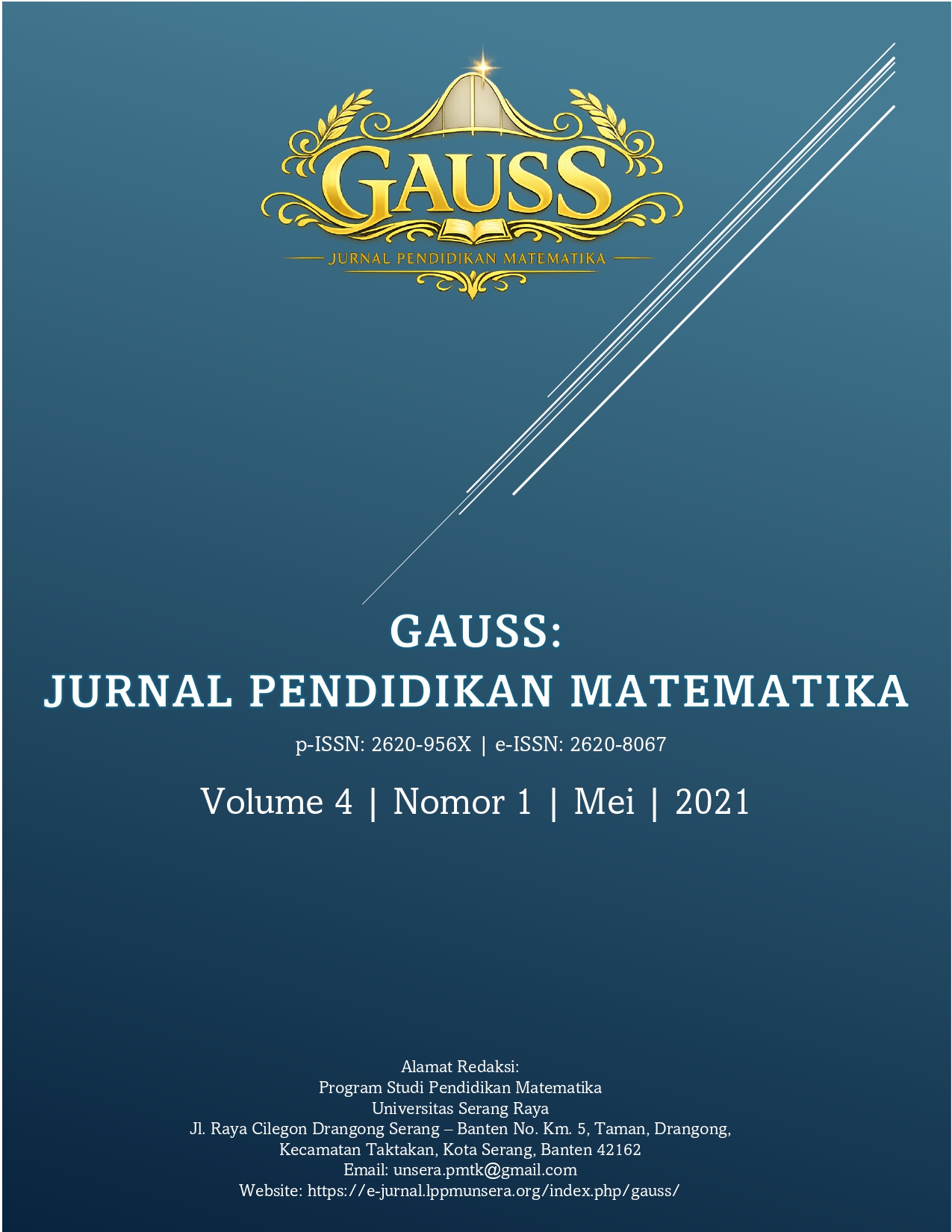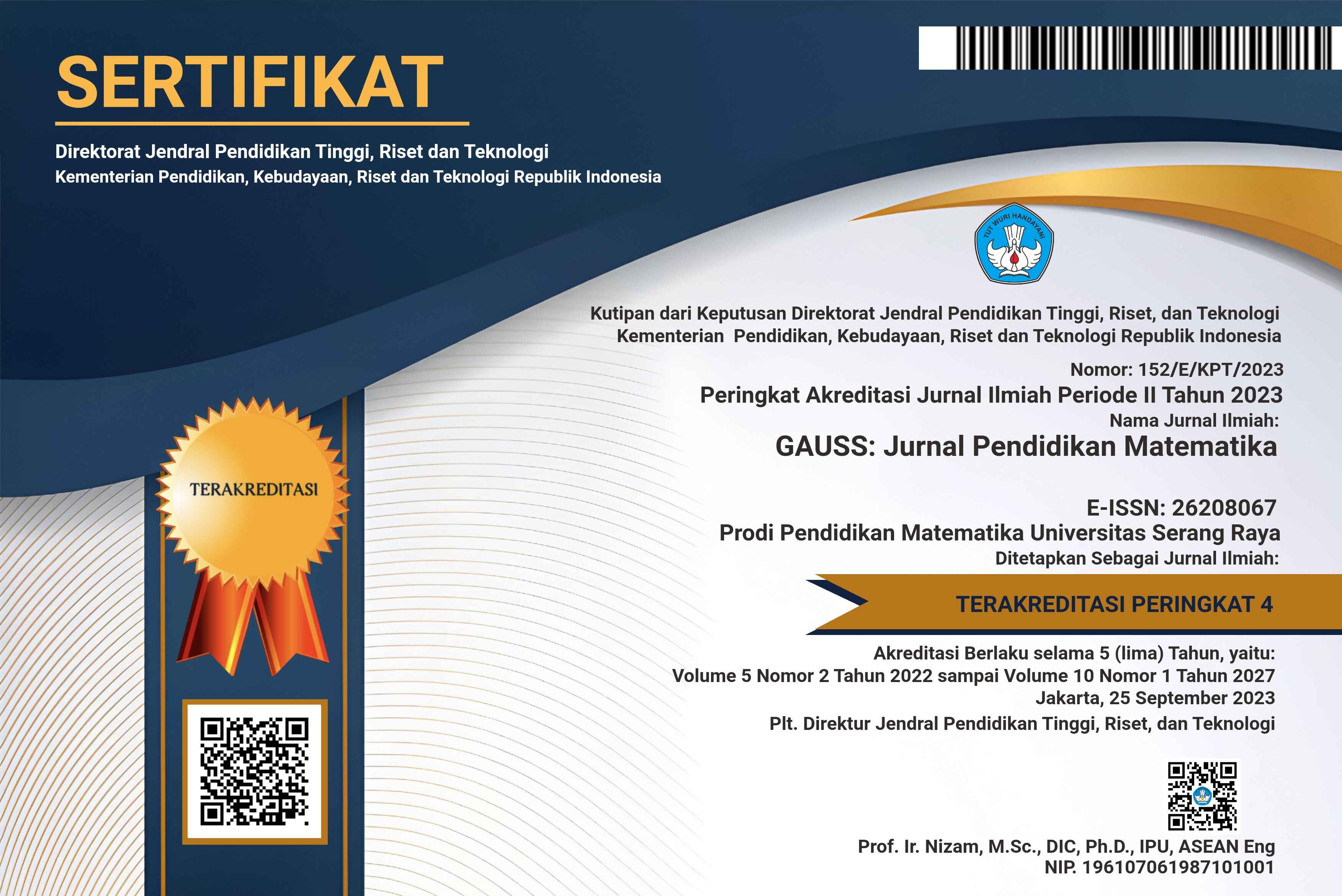Pengaruh Model Pembelajaran Problem Based Learning terhadap Peningkatan Kemampuan Berpikir Kritis Matematis Siswa SMP Kelas IX
DOI:
https://doi.org/10.30656/gauss.v4i1.3129Abstrak
Penelitian ini bertujuan untuk mengetahui pengaruh model pembelajaran problem based learning (PBL) terhadap peningkatan kemampuan berpikir kritis matematis siswa kelas IX di SMPN 4 Bilah Hulu. Jenis penelitian adalah eksperimen semu (quasi experiment). Model desain menggunakan pretest posttest kontrol group design. Populasi penelitian ini seluruh siswa SMP N 4 Bilah Hulu pada tahun ajaran 2020/2021 yang terdiri dari 156 siswa. Pengambilan sampel dilakukan menggunakan teknik random sampling dan diperoleh sampel penelitian yaitu IX-1 berjumlah 22 siswa sebagai kelas kontrol dan 22 siswa IX-2 sebagai kelas eksperimen. Instrument penelitian ini menggunakan tes dalam bentuk essay . Teknik analisis data menggunakan analisis deskriptif yang meliputi uji normalitas, uji homogenitas dan uji hipotesis yaitu uji-t (paired sample t-test). Hasil penelitian menunjukkan nilai sig. (2-tailed) sebesar 0,000 < 0,05, maka dapat disimpulkan terdapat pengaruh yang signifikan model problem based learning terhadap peningkatan kemampuan berpikir kritis matematis siswa kelas IX SMPN 4 Bilah Hulu.
Unduhan
Diterbitkan
Terbitan
Bagian
Lisensi
Authors who publish articles in GAUSS : JURNAL PENDIDIKAN MATEMATIKA agree to the following terms:
- Authors retain copyright and grant the journal the right of first publication with the work simultaneously licensed under a Creative Commons Attribution-ShareAlike 4.0 International License that allows others to share the work with an acknowledgment of the work's authorship and initial publication in this journal.
- Authors are able to enter into separate, additional contractual arrangements for the non-exclusive distribution of the journal's published version of the work (e.g., post it to an institutional repository or publish it in a book), with an acknowledgment of its initial publication in this journal.
- Authors are permitted and encouraged to post their work online (e.g., in institutional repositories or on their website) before and during the submission process, as it can lead to productive exchanges, as well as earlier and greater citation of published work (See The Effect of Open Access).




